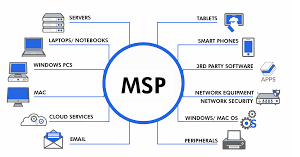When starting a business, understanding the importance of a Legal Entity Identifier (LEI) can be crucial. Registered in the LEI Register, an LEI is a 20-character alphanumeric code that uniquely identifies legal entities participating in financial transactions worldwide. Here’s what you need to know about LEI and why it matters for your new business.
The Basics of LEI
An LEI code is more than just a sequence of numbers and letters; it serves as a global reference number that provides transparent and unique identification of legal entities participating in financial transactions. This system was developed to enhance the reliability of data in financial markets, making it easier to identify transaction partners globally.
Each LEI contains information about an entity’s ownership structure and thus acts as a bridge linking various records and revealing the legal ownership of a company. This transparency helps in managing financial risks and simplifying regulatory reporting. As a new business, having an LEI can contribute to establishing trust with banks and financial institutions, which is essential for smooth operations.
Why Your Business Needs an LEI
Having an LEI boosts your credibility in the international marketplace. It reassures lenders and trading partners about your business’s legitimacy, which is crucial for securing finance and initiating business relationships. For businesses involved in trading, an LEI is often mandatory, as it helps comply with many financial reporting requirements globally.
Registering for an LEI can protect your business identity in global markets. The LEI system helps prevent identity theft and fraudulent activities by providing accessible and accurate information about the company’s structure and ownership, which is publicly available and verifiable by anyone.
Getting Your LEI Registered
Registering for an LEI is straightforward. The first step is to find a service provider accredited by the Global Legal Entity Identifier Foundation (GLEIF). While the application process may vary slightly depending on the provider, you typically need to submit your business details and legal documentation proving the existence of your entity.
Once you apply, the LEI code is usually issued within a few days. Keep in mind that LEI codes need to be renewed annually, which ensures that all information remains current and accurate. This renewal process is essential to maintain the integrity of the LEI system.
Managing Your LEI Information
It’s important to keep your LEI information up-to-date. Any changes in your company’s legal status, structure, or ownership must be reflected in your LEI data. Updating your LEI not only complies with global regulatory requirements but also ensures that the information available to potential business partners is accurate.
Failure to update your LEI could lead to your LEI being marked as ‘lapsed,’ which can affect your company’s credibility and might restrict your ability to engage in certain financial activities. Therefore, regular checks and updates are crucial for the health of your business’s financial and operational activities.
The Long-term Benefits of Having an LEI
In the long run, having an LEI offers numerous benefits beyond compliance. It simplifies and secures transactions by reducing the time and cost associated with counterparty verification. This efficiency is crucial in today’s fast-paced business environments where time and trust are money.
An LEI enhances your business’s transparency, making it more attractive to potential investors and partners who prioritize clear and reliable company information. As your business grows and enters new markets, an LEI remains a badge of credibility and compliance, helping pave the way for smoother international expansion.
By understanding these aspects of the LEI system before starting your business, you can position your company as a credible, transparent, and trustworthy entity right from the start. This foundational step can have far-reaching implications for your business’s success and operational efficiency in the global marketplace.



































